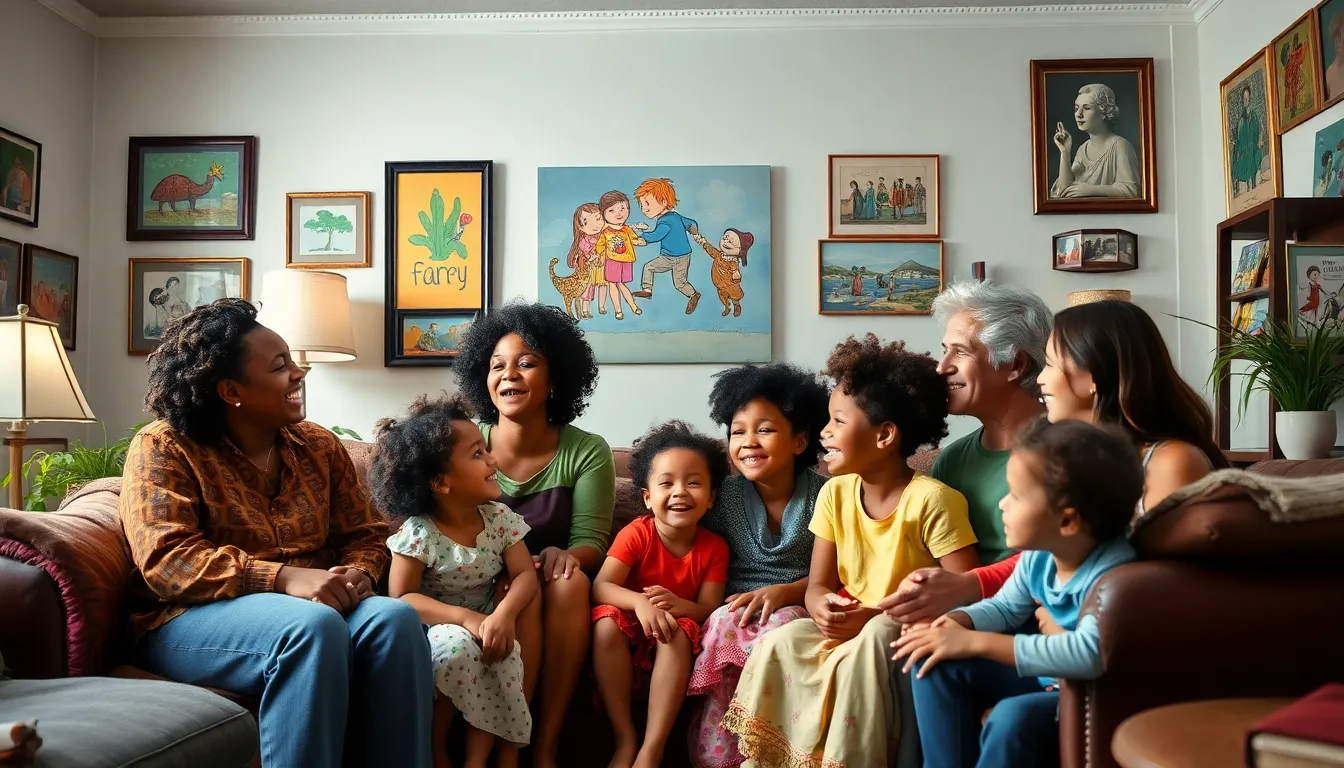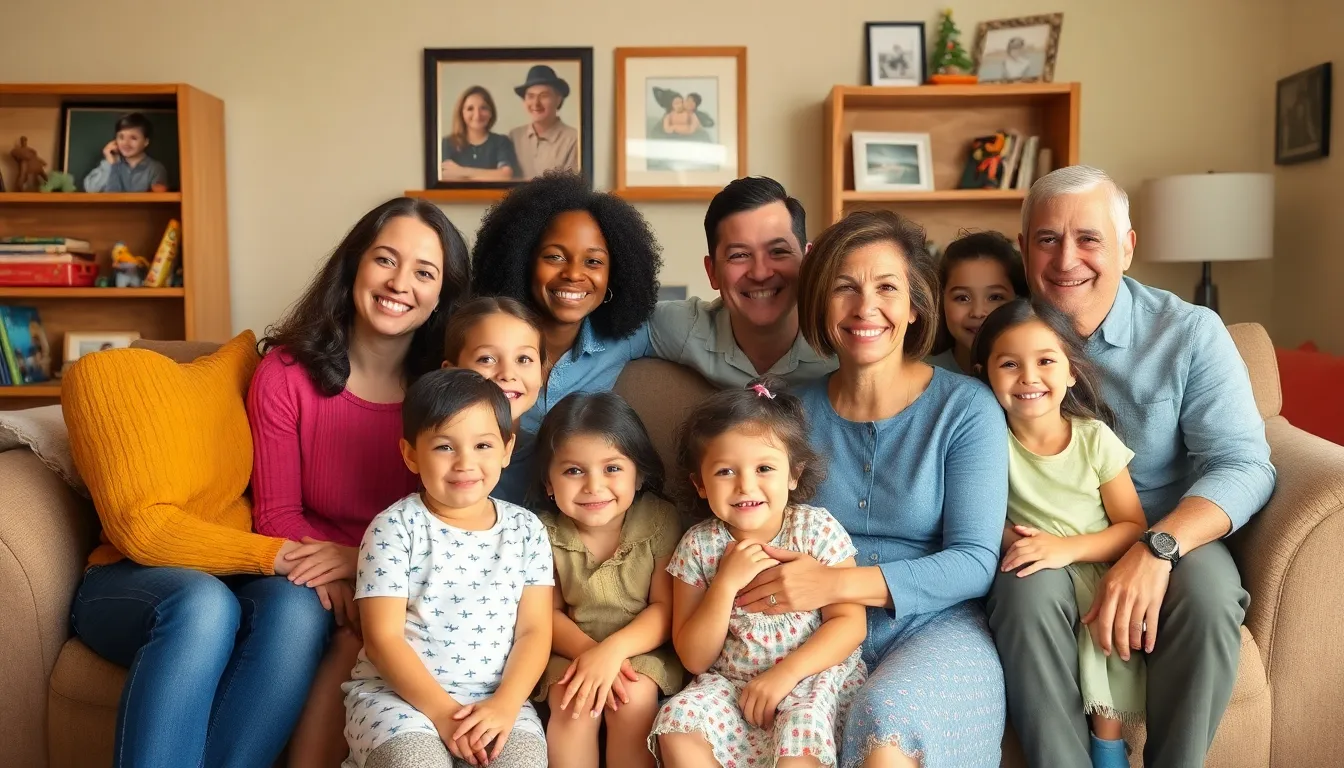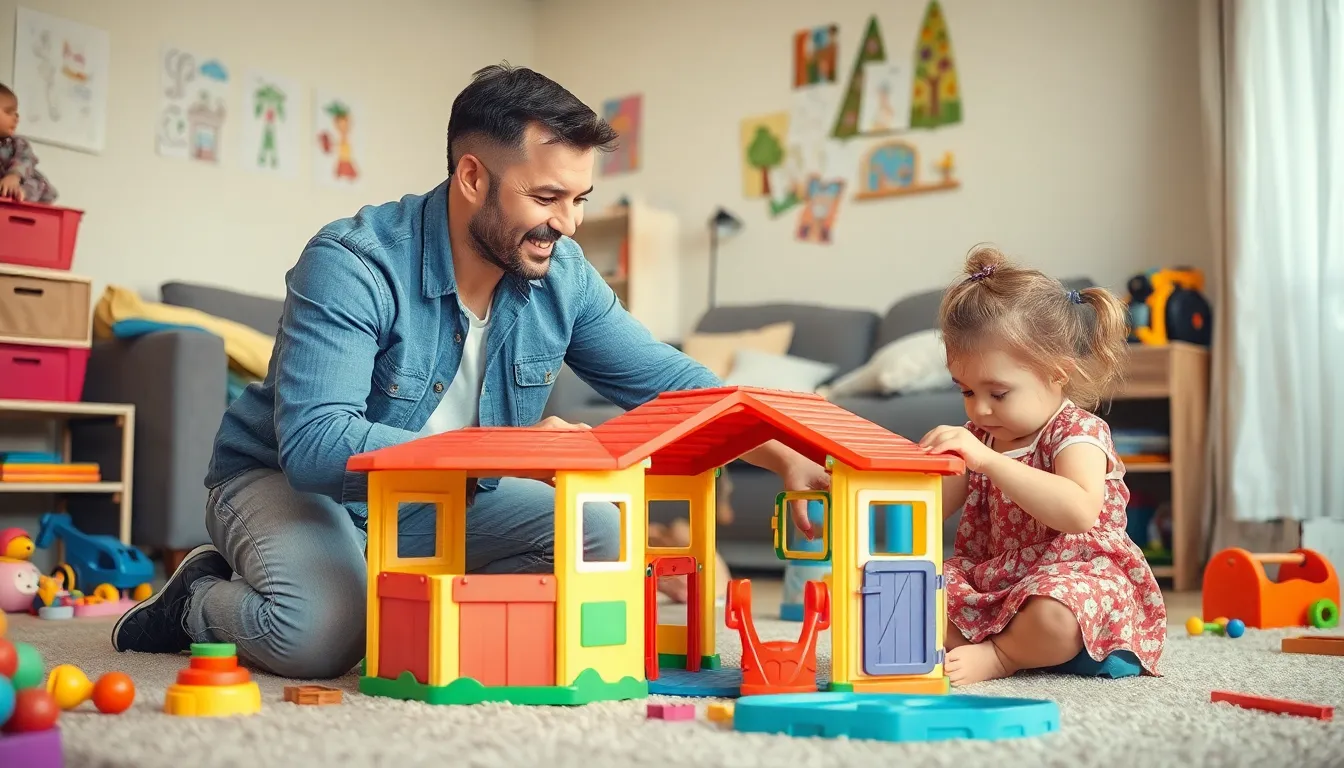Foster care stories have a way of tugging at the heartstrings while also showcasing the incredible resilience of children and families. These narratives reveal the unexpected twists and turns that come with opening one’s home and heart. From hilarious mishaps to profound moments of connection, each story offers a glimpse into a world that’s both challenging and rewarding.
Imagine a family dinner where the pasta turns into a science experiment or a game night that spirals into a full-blown pillow fight. These experiences highlight the unique bond formed in foster care. They remind us that behind every statistic, there’s a vibrant story waiting to be told. Foster care isn’t just about providing shelter; it’s about creating memories that last a lifetime. Dive into these inspiring tales and discover how love can truly change lives, one laugh at a time.
Table of Contents
ToggleThe Importance of Foster Care Stories
Foster care stories serve as vital narratives that illuminate the resilience of children and families. These stories highlight specific experiences that illustrate the transformative power of foster care. Emotional connections often emerge during chaotic family dinners or playful game nights, showcasing the joy found within these relationships. Every story offers a unique perspective on challenges faced and victories celebrated.
Children in foster care experience life changes that shape their identities. Sharing these experiences creates awareness and fosters empathy among the public. Each narrative reflects the complexities of family dynamics and the perseverance required to build lasting bonds.
Humorous anecdotes balance the emotional weight, revealing the lighter side of foster care. Such moments demonstrate that love and laughter can thrive even in challenging situations. In turn, these stories motivate potential foster parents to take action, emphasizing the positive impact they can have on a child’s life.
Statistics alone cannot capture the essence of foster care. Personal accounts deeply resonate with people, inspiring community support and engagement. By reading and sharing these stories, individuals connect with the realities of foster care in profound ways. Ultimately, the importance of foster care stories lies in their ability to foster understanding and spark conversations that bring about change.
Inspiring Transformations in Foster Care


Foster care stories often illustrate the resilience and courage of those involved. These narratives reveal the profound impact of love and connection on the lives of foster children and their families.
Personal Accounts from Foster Children
Foster children share experiences that highlight personal growth and transformation. One young girl, having moved through multiple placements, found stability with a loving foster family who encouraged her passions. Another teen describes overcoming challenges with supportive mentors, eventually discovering a talent for soccer that led to a scholarship. Each narrative underscores a journey of hope, resilience, and the power of relationships formed through foster care. These accounts resonate deeply, fostering understanding of the emotional challenges faced.
Success Stories of Foster Parents
Foster parents often reveal powerful success stories that inspire others. One couple, after fostering siblings for several years, managed to reunite them with their biological family, turning a potentially sad story into a hopeful reunion. Another foster mother established a community program, providing resources for other families navigating foster care, ensuring they receive proper support. Their commitment to nurturing and advocating for children illustrates the transformative effects of opening one’s home and heart. Each story from foster parents reaffirms the profound difference they make in the lives of children.
Challenges Faced in the Foster Care System
Foster care presents numerous challenges that require careful attention and understanding.
Overcoming Stigmas Associated with Foster Care
Stigmas surrounding foster care often lead to misunderstandings about its purpose. Many hold beliefs that foster children are problematic or unworthy of love. This perception affects children’s experiences as they enter new environments. Education plays a critical role in dispelling these myths. Communities must work to reshape narratives, emphasizing foster care’s positive aspects. Sharing personal stories reveals the depth and resilience of these children. Increased awareness fosters understanding and empathy within society.
The Emotional Impact on Foster Children
Emotions run high for foster children navigating their unique circumstances. Many face feelings of abandonment and insecurity, impacting their mental health. These experiences can hinder their ability to form trust and attachments. Regular support systems are necessary for helping them cope with trauma. Counseling and therapy often provide vital resources, promoting emotional healing. Over time, positive relationships with caring foster families can foster personal growth and resilience. Understanding these emotional challenges allows communities to better support foster children as they rebuild their lives.
Resources for Sharing Foster Care Stories
Numerous organizations provide platforms for sharing foster care stories. The Children’s Bureau, part of the U.S. Department of Health and Human Services, offers resources and guidelines for writing and sharing experiences in foster care.
Community forums encourage personal narratives from foster parents and children. Websites like Foster Care Stories and The Foster Care Alumni of America provide spaces for individuals to express their journeys, fostering connections among readers.
Social media platforms serve as powerful tools for spreading awareness. Twitter campaigns, Facebook groups, and Instagram posts help highlight various experiences. Using designated hashtags, individuals can share stories more widely, increasing visibility and empathy.
Organizations often create events focused on storytelling. Local foster care agencies might host open mic nights where participants can share their experiences in a supportive environment.
Podcasts dedicated to foster care allow for in-depth exploration of individual stories. Shows like “Foster Care Unplugged” feature discussions that shed light on the triumphs and struggles of those involved in the system.
Books authored by foster care alumni provide personal insights into their experiences. Literature such as “Foster Care: A Guide for Parents” and “Before We Were Strangers” emphasizes the emotional journeys within foster care.
Teachers and educators benefit from resources that illustrate the importance of sharing foster care stories. Workshops and training sessions often incorporate personal accounts to promote understanding and support in the classroom.
Nonprofits actively seek story submissions for awareness campaigns. Sharing these narratives can change perceptions, encouraging communities to support foster care initiatives more effectively.
Foster care stories hold immense power to foster empathy and understanding within communities. By sharing these narratives, individuals can illuminate the complexities of foster care while highlighting the resilience of children and families. Each story serves as a reminder of the transformative impact of love and connection in overcoming challenges.
As these accounts circulate, they inspire conversations that can reshape perceptions and encourage support for foster care initiatives. The journey of each child in foster care is unique and deserves to be heard. By amplifying these voices, society can work towards a more compassionate and informed approach to foster care, ultimately creating a brighter future for those involved.







